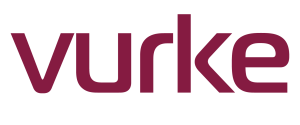table of contents
- Why Project Management Matters in Healthcare
- Challenges in Managing Healthcare Projects Internally
- Benefits of Outsourcing Project Management for Healthcare
- Key Areas Where Healthcare Organizations Outsource Projects
- Trends Shaping Project Management Outsourcing in Healthcare
- Best Practices for Successful Outsourcing
- Case Study: Successful Outsourcing in Action
- Conclusion
- FAQs
Strategic Project Management: A Guide for Healthcare Organizations
Healthcare organizations are at the forefront of transformative change, embracing innovations like telemedicine, AI diagnostics, and value-based care. But with these advancements come complex projects requiring precision, compliance, and timely execution. Managing these projects in-house can overwhelm internal teams, diverting attention from patient care. Project management outsourcing for healthcare offers a viable solution, enabling organizations to delegate critical projects to experts while maintaining focus on their core mission. This guide dives deep into why outsourcing is vital for healthcare, the challenges it addresses, and best practices to ensure success.
Why Project Management Matters in Healthcare
In healthcare, project management isn’t just a business function, it’s a critical enabler of patient outcomes. From implementing electronic health records (EHR) systems to launching telemedicine platforms, successful project management ensures:
- Timely Execution: Meeting deadlines is essential to avoid disruptions to patient care.
- Budget Adherence: Managing costs effectively to maximize ROI.
- Compliance and Quality: Ensuring projects meet regulatory standards like HIPAA and FDA guidelines.
However, managing these projects internally can stretch resources thin, especially when teams lack specialized expertise. This is where outsourcing becomes invaluable. Vurke Inc, a U.S.-based leader in workforce solutions, provide expertise in managing complex healthcare projects, ensuring precision and compliance.
Challenges in Managing Healthcare Projects Internally
1. Regulatory Complexity:
Healthcare projects must navigate a labyrinth of regulations, from HIPAA compliance to local health authority approvals. These requirements demand meticulous planning and execution, which can overwhelm internal teams.
2. Rapid Technological Advancements:
The integration of cutting-edge technologies such as AI, IoT, and telemedicine requires expertise that many organizations lack in-house. For instance, deploying a telehealth platform involves technical, operational, and compliance challenges that can derail a project if not managed effectively.
3. Resource Constraints:
Budget constraints, staffing shortages, and the ongoing demand for patient care can make it difficult for healthcare providers to allocate sufficient resources to projects.
4. Complex Stakeholder Management:
Healthcare projects often involve multiple stakeholders, including clinicians, IT teams, administrators, and patients. Misalignment between these groups can lead to delays and inefficiencies.
Benefits of Outsourcing Project Management for Healthcare
1. Access to Specialized Expertise:
Outsourcing partners bring a wealth of experience in managing healthcare-specific projects, ensuring best practices are applied from start to finish. For example, outsourcing the implementation of a radiology telemedicine platform to experts ensures smooth integration with existing systems and compliance with medical imaging standards. Vurke Inc specializes in facilitating remote hiring and managing such projects, helping healthcare organizations achieve their goals.
2. Cost Efficiency:
Hiring and training an internal team for short-term projects can be expensive. Outsourcing eliminates the need for long-term commitments, allowing organizations to scale up or down as needed.
3. Focus on Core Competencies:
By delegating non-core tasks, healthcare organizations can concentrate on improving patient care and operational efficiency.
4. Scalability and Flexibility:
Outsourcing enables organizations to quickly adapt to changing project requirements or scale operations to meet increased demand.
Key Areas Where Healthcare Organizations Outsource Projects
1. IT and Digital Transformation:
- Implementing electronic health records (EHR).
- Integrating AI diagnostics and machine learning tools.
- Deploying telemedicine and remote patient monitoring systems.
2. Compliance and Risk Management:
- Conducting HIPAA and GDPR audits.
- Implementing data security measures.
3. Supply Chain Optimization:
- Streamlining procurement processes for medical supplies.
- Managing inventory with AI-driven tools.
4. Clinical Trials:
- Coordinating multi-site trials.
- Managing patient recruitment and data collection.
5. Facility Expansion and Renovation:
- Overseeing construction and equipment installation.
- Ensuring facilities meet regulatory and accreditation standards.
Trends Shaping Project Management Outsourcing in Healthcare
1. AI-Driven Project Management:
AI tools are transforming project management by automating tasks like scheduling, risk assessment, and progress tracking. For example, AI can predict potential delays in implementing an EHR system, allowing teams to address issues proactively.
2. Telehealth Integration:
With the pandemic accelerating the adoption of telemedicine, outsourcing partners are playing a crucial role in designing, deploying, and scaling telehealth platforms.
3. Focus on Value-Based Care:
As healthcare shifts towards value-based models, projects are increasingly focused on improving patient outcomes while reducing costs. Outsourcing ensures these initiatives are executed efficiently.
4. Global Collaboration:
Healthcare organizations are partnering with outsourcing providers worldwide, leveraging diverse expertise and cost advantages. Vurke Inc bring global expertise to healthcare organizations, ensuring efficient project execution across borders.
Best Practices for Successful Outsourcing
1. Select the Right Partner:
Choose a partner with a proven track record in healthcare project management. Verify certifications, references, and case studies to ensure they meet your standards.
2. Define Clear Objectives and Scope:
Clearly outline project goals, deliverables, timelines, and budgets to avoid misunderstandings.
3. Establish Robust Communication Channels:
Regular updates and transparent communication are vital to ensure alignment between all stakeholders.
4. Prioritize Data Security and Compliance:
Healthcare projects often involve sensitive patient data. Ensure your outsourcing partner has robust security measures in place and complies with relevant regulations.
5. Monitor and Evaluate Performance:
Track project progress using metrics like budget adherence, timeline milestones, and quality benchmarks. Conduct post-project evaluations to identify lessons learned.
Case Study: Successful Outsourcing in Action
A mid-sized hospital in Texas faced challenges in implementing a telemedicine platform due to limited internal expertise. By outsourcing the project to a healthcare-focused management firm, the hospital achieved:
- Timely Deployment: The platform was operational within six months.
- Cost Savings: Outsourcing reduced implementation costs by 25%.
- Improved Access: The platform allowed patients in rural areas to connect with specialists seamlessly.
This success highlights how outsourcing can bridge gaps in expertise and resources, enabling healthcare organizations to achieve their goals.
Conclusion
Project management outsourcing is no longer just an option for healthcare organizations, it’s a strategic necessity. By leveraging specialized expertise, improving cost efficiency, and maintaining focus on patient care, outsourcing can drive operational excellence and innovation. For healthcare leaders looking to navigate the complexities of modern projects, partnering with the right outsourcing firm can unlock new possibilities and ensure long-term success.
FAQs
What types of healthcare projects are best suited for outsourcing?
IT implementations, compliance audits, clinical trial coordination, and telemedicine deployments are common examples.
How do outsourcing partners ensure compliance with healthcare regulations?
Reputable partners have dedicated compliance teams and adhere to standards like HIPAA, GDPR, and ISO certifications.
Can outsourcing save money for healthcare organizations?
Yes, outsourcing eliminates the need for permanent hires and reduces overhead costs, making it a cost-effective solution for project-specific needs.



